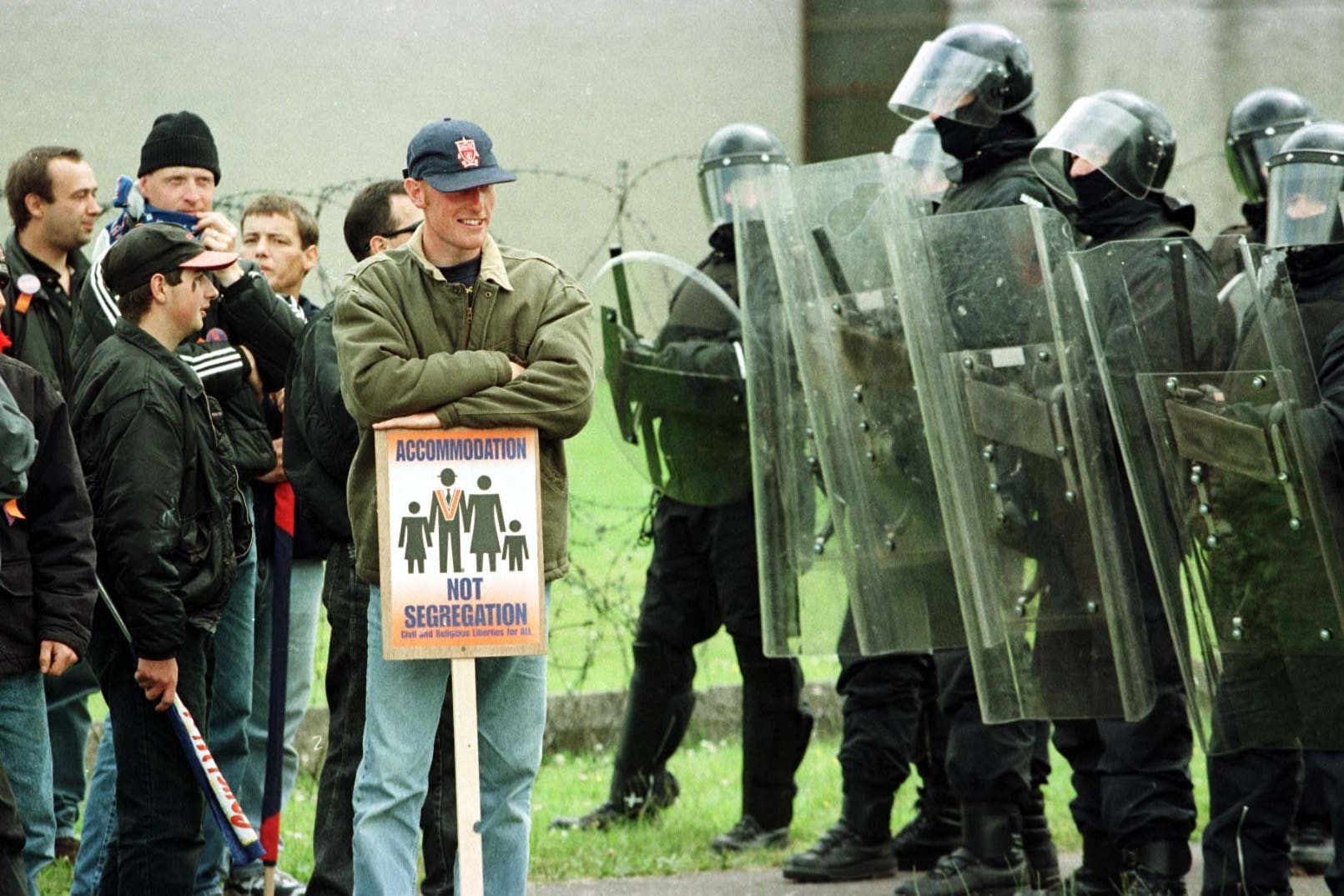Quinn murders ‘changed mood’ in NI at height of Drumcree standoff
Declassified papers reveal the level of violence during the 1998 parading dispute.

Your support helps us to tell the story
From reproductive rights to climate change to Big Tech, The Independent is on the ground when the story is developing. Whether it's investigating the financials of Elon Musk's pro-Trump PAC or producing our latest documentary, 'The A Word', which shines a light on the American women fighting for reproductive rights, we know how important it is to parse out the facts from the messaging.
At such a critical moment in US history, we need reporters on the ground. Your donation allows us to keep sending journalists to speak to both sides of the story.
The Independent is trusted by Americans across the entire political spectrum. And unlike many other quality news outlets, we choose not to lock Americans out of our reporting and analysis with paywalls. We believe quality journalism should be available to everyone, paid for by those who can afford it.
Your support makes all the difference.The murders of three young children in Ballymoney were recorded as having “changed the mood” in Northern Ireland following a period of sustained violence at the height of the Drumcree standoff in 1998.
Newly released state papers show how then secretary of state Mo Mowlam hoped the Orange Order would shift its position on the contentious parade in the wake of the deaths of the three Quinn brothers in the Co Antrim town.
The newly formed Parades Commission had banned the Orange Order from marching along the Garvaghy Road in Portadown on July 5, 1998.
This led to violence lasting for a week in which the security forces were repeatedly attacked at Drumcree, as well as loyalist protests and violence in other parts of Northern Ireland.
The Ballymoney murders had changed the mood in the province. The chief constable's call in media interviews for all to pause and reflect had been echoed by David Trimble
In the early hours of July 12, three young brothers, Jason, Mark and Richard Quinn, were killed following a UVF firebomb attack on their Ballymoney home.
The state papers reveal the details of a meeting Ms Mowlam held with officials later the same day.
The memo stated: “The Ballymoney murders had changed the mood in the province.
“The chief constable’s call in media interviews for all to pause and reflect had been echoed by (First Minister) David Trimble.
“William Bingham (an Orange Order chaplain) was delivering a sermon responding to the Ballymoney tragedy and would be following this up with a public statement calling for the Drumcree protest to be called off.
“The Orange Order protest at Hillsborough had ended, and flowers had been left as a mark of respect.
“The Orange Order leadership were meeting and the chief constable hoped for a positive public statement around 2pm.
“Trimble and (Seamus) Mallon were considering a joint demarche.”
The report said there followed a discussion on what line and tone Ms Mowlam should adopt during a press conference.
It stated: “The themes would be sympathy, recognition of the collective failure which this situation represented, and calls for people to step back.
“Direct blame for the Orange leadership at this point might undermine the positive signs emerging of a shift in their position.”
Later in the day the Northern Ireland Office (NIO) Security Policy and Operations Division provided an update on the security situation.
A memo said: “In the aftermath of this morning’s murders … the day has been characterised by intense activity aimed at resolving the standoff (the Parades Commission turned down the fresh application to walk Garvaghy Road) and easing tensions for tomorrow’s parade on the Lower Ormeau.
“Throughout the day it has been generally quiet at Drumcree and elsewhere.
“Statements were issued by the the First Minister and deputy First Minister, calling for the Orangemen at Drumcree to immediately end their protest and for the residents’ committee and the people of Garvaghy Road to positively recognise the significance of such a move (there has been no response yet from Orangemen at Drumcree).
“At around midday the peace camp at Hillsborough Castle was reported to have disbanded, apparently in response to this morning’s murders.”
The security report also contained RUC statistics which revealed that between July 4-12 across Northern Ireland there had been 498 attacks on security forces (including 19 shooting incidents and 42 bombing incidents), 254 arrests for public order offences, 621 petrol bombing incidents, 2,237 petrol bombs recovered, 70 RUC officers injured and 751 plastic baton rounds fired.
The declassified papers also reveal that two days earlier Ms Mowlam had expressed a wish to make contact with major companies across Northern Ireland to commend them for their efforts to operate as usual during the Drumcree disturbances.